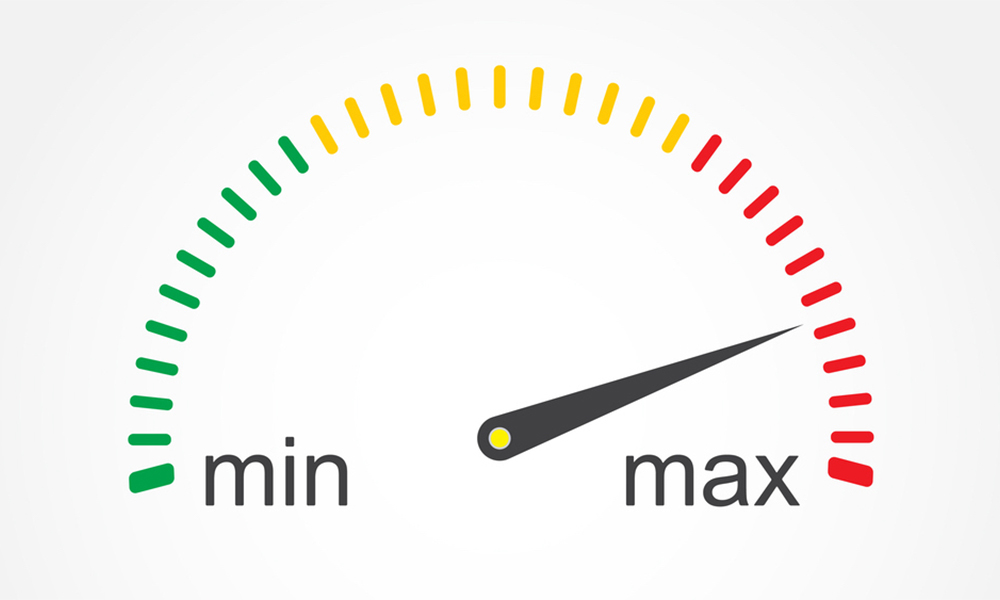“The best laid plans of mice and men often go awry” – Robert Burns
Be it securing the desired outcome from a professional negotiation, strengthening an important relationship or meeting a personal growth goal, we often deviate from our carefully crafted plans.
Why?
What causes our inability to stick to a course of action? Why do we start making poor choices that eventually derail us? And how can we overcome this tendency in order to achieve our original objectives? These are the questions that Francesca Gino, a behavioural scientist and professor at Harvard Business School, tackles in her fascinating book, Sidetracked: Why Our Decisions Get Derailed, and How We Can Stick to the Plan.
As 2017 draws to a close, no doubt many of you are making resolutions and setting goals for the coming year. So, drawing from Gino’s insightful work, my message this week focuses on how to make smarter decisions and not get sidetracked as you execute your plans.
Gino identifies three main types of forces that can take you away from your original intentions and trigger irrational choices. One, forces from within – your own thoughts, emotions, and biases. Two, forces from your relationships – the influence of your social circle. And three, forces from the outside world – external factors that form the broader context in which you live and work.
So, how can you overcome these different forces to make better choices? Psychologist Daniel Kahneman, who has deeply researched the ways in which we process information and reach decisions, explains that the brain broadly contains two decision-making systems. System 1 is automatic and intuitive, requiring little effort. System 2 is deliberate and logical, requiring greater effort. System 1 decisions are helpful in certain contexts; for example, if you see a car speeding towards you, your brain instantly tells you to get out of the way. But when you leave more complex questions to System 1, you often end up with erroneous judgements. Using System 2, on the other hand, enables you to process information and reach decisions in a thoughtful manner.
Gino offers a number of suggestions to engage System 2 of your brain in order to make more logical, informed decisions that help you stay on track and achieve your end goal. I want to share with you, some of the key takeaways that I found most useful (For an in-depth look at her strategy, backed up with detailed psychological experiments, do pick up a copy of the book.)
1. Build personal awareness
When it comes to perceptions of self, most of us wear rose-tinted glasses. We have highly inflated views of our abilities, leading to overconfidence and bad decisions. For instance, in the quest to achieve your team’s target, you may take on an unrealistically large share of the workload – which ultimately proves to be unsustainable. Or, you might be convinced that your resolution to eat healthy can withstand numerous outings with junk-food-loving friends – only to find yourself giving in to temptation time and again.
Think back to past failures: can you pinpoint situations where your plans were derailed because of unwarranted self-confidence? Getting acquainted with these inherent biases is an essential first step towards remaining on track. Raising self-awareness helps you to avoid snap judgements, make decisions more deliberately, and surround yourself with positive influences. Plus, it makes you more receptive to listening to other people’s views – which bring me to my next point.
2. Seek out other opinions
In her book, Gino outlines numerous stories and studies that draw the same conclusion: that we find the opinions of others to be less convincing and less compelling than our own… As a result, it could be that we ignore the advice we receive from others even when it is more accurate than our own perspective. You can probably find examples of this in your own life. Perhaps you refused to heed your doctor’s recommendation to get more exercise, convinced that you were pretty healthy for your age. Or maybe you ignored sound market advice from a colleague who happens to be an expert in the area, thinking that your quick Internet research on the topic was a better guide. Leaders are especially vulnerable to this failing, as power increases the likelihood of ignoring useful input.
As you pursue your goal, make it a point to actively solicit and open your mind to perspectives from solid sources. Gino notes that many people refrain from asking for advice because they think it makes them look weak or ignorant; in reality, doing so actually raises the advice-giver’s estimation of your competence.
3. Gauge your “emotional temperature”
Emotions triggered by unrelated events can affect our decision-making far more than we realise. Be it bad weather or an awful traffic jam on the way to work, all kinds of factors can throw us out of whack – which is why it’s important to take your “emotional temperature” when making significant decisions or during crucial interactions.
Find yourself speaking curtly to your team, or shooting down every well-meant suggestion from your partner? Take a step back and examine your feelings. Does the reason for your bad mood lie elsewhere? Anger caused by situation A can easily spill over into situation B, causing you to see everything in a negative light and be overly critical of other people. Simply acknowledging your emotional state can keep you from making misguided calls.
4. Consider the other’s perspective
The execution of your carefully outlined plan often depends on the involvement of other people. To achieve success, it’s essential to consider their point of view. While negotiating a business agreement, you must anticipate the responses of the opposite side. While launching a new product or ad campaign, you must step into your customer’s shoes. While trying to repair a relationship, you must empathise with the other person’s feelings and concerns.
Without perspective taking, Gino points out, we tend to overestimate how much others share our attitudes and feelings. We are also likely to forget that they may not have access to the same knowledge and information as us – and vice-versa. The best way to get on the same page is to ask plenty of questions (don’t rely on guesswork – it’s notoriously inaccurate!), genuinely consider the other person’s point of view, and share knowledge freely.
5. Choose your companions
You may think of “peer pressure” as a problem faced exclusively by school and college kids. As it turns out, even in adulthood, many of your decisions are influenced by the company you keep – for better or for worse. As Gino explains:
“The opinions and behaviour of ‘people like us’ influence us quite powerfully…and it doesn’t matter whether we are witnessing admirable or unethical behaviour…. By paying attention to the influence others have on us, we can make sure our networks include people who bring out the best in us”.
In other words, surround yourself with positive influences and spend less time with people who display qualities and behaviours that could derail your efforts. For example, if you’re taking a bold new direction at work, skip hanging out with naysayers who relentlessly criticise anything unfamiliar. If you are preparing for a marathon, seek out fitness-oriented friends who can help you stay motivated.
6. Widen your information net
In the course of evaluation, we often end up ignoring valuable context. Think of the way in which many sports fans judge coaches: after just 1-2 good performances, a coach takes on a larger than life persona, and when the situation reverses, their fall from grace is equally rapid and dramatic. The broader ecosystem – like the existing dynamics of the team, the individual health of players, the strength of rivals – is often overlooked; depending on the outcome, the lion’s share of praise or blame is automatically attributed to the coach.
Now, consider the dangers of incomplete analysis in a different setting such as hiring, promotion, negotiation, or market strategy.
Clearly, bad information or the illogical use of information can massively derail your painstakingly created plan of action. To assess people as well as situations more accurately as you work towards your target, Gino advises carefully considering the source of your information as well as widening your focus to include the bigger picture.
Forget about making decisions (especially where people are concerned) based on “gut feeling” – this simply gives free reign to your built-in biases. Instead, get as much information as possible from varied, reliable sources and examine it critically. Gino also suggests checking in with yourself regularly along the way: Why did I choose the information that I did? What information am I missing? What was my initial plan? Why did I embark on this course of action?
As always, I look forward to your thoughts.








Dear Sir,
Superb and simple content matching with the reality.
Thanks for sharing and writing on this very relevant topic, which could be encountered at all walks of life, more particularly in your work life.
Besides all the 6 points considered, which are responsible for the derailment, I feel communication is also very crucial. Wrong communication, poor communication, or no communication on right issues, not essentially with a bad intent, could lead to all the wrong things for a person. It could lead to a wrong bias by peers, seniors or juniors making life difficult.
Thanks once again and keep sharing!
Best regards,
Sandeep